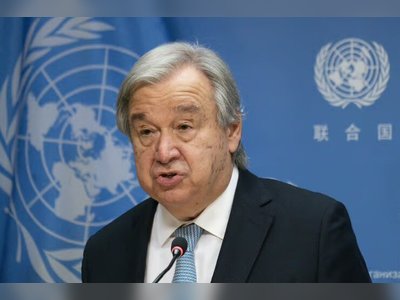European Countries Boost Defense Budgets Due to Changes in U.S. Support
Expected decreases in American military aid are leading EU nations to increase defense spending, which may affect social welfare initiatives.
European nations are gearing up to significantly raise their defense budgets in light of possible decreases in U.S. military assistance under President Donald Trump's administration.
This represents a considerable departure from the post-Cold War period, during which many European countries scaled back defense spending and redirected funds towards social programs. The European Commission has introduced the 'ReArm Europe' initiative, which aims to mobilize up to 800 billion euros in the coming years to bolster the continent's defense capacity.
Central elements of this initiative include suspending EU budget regulations to permit member states to boost defense spending, providing 150 billion euros in loans for collaborative defense projects, reallocating existing EU funds to defense investments, and enhancing the European Investment Bank's support for defense companies. Germany has unveiled a 1 trillion-euro spending plan intended to strengthen both civilian and defense sectors.
This proposal includes an amendment allowing defense-related spending to circumvent the nation's stringent fiscal regulations and allocates 500 billion euros for infrastructure and climate initiatives. France is also working to improve its defense capabilities.
President Emmanuel Macron has instructed ministers to investigate financing solutions, including utilizing the Public Investment Bank, to back the defense sector. These increases in defense funding may require adjustments from other budgetary areas, such as social welfare and healthcare programs.
NATO Secretary-General Mark Rutte mentioned that European nations currently dedicate up to a quarter of their national income to pensions, health, and social security systems. He proposed that reallocating a small portion of these resources could significantly enhance defense capabilities. The European Defence Agency reported that in 2023, EU defense spending hit a record 279 billion euros, reflecting a 10% rise from the previous year and marking the ninth consecutive year of growth.
Twenty-two member nations raised their defense budgets, with eleven of them increasing spending by over 10%. This trend underscores a broader commitment among European countries to strengthen their military capabilities in response to shifting geopolitical dynamics and potential changes in long-standing alliances.
This represents a considerable departure from the post-Cold War period, during which many European countries scaled back defense spending and redirected funds towards social programs. The European Commission has introduced the 'ReArm Europe' initiative, which aims to mobilize up to 800 billion euros in the coming years to bolster the continent's defense capacity.
Central elements of this initiative include suspending EU budget regulations to permit member states to boost defense spending, providing 150 billion euros in loans for collaborative defense projects, reallocating existing EU funds to defense investments, and enhancing the European Investment Bank's support for defense companies. Germany has unveiled a 1 trillion-euro spending plan intended to strengthen both civilian and defense sectors.
This proposal includes an amendment allowing defense-related spending to circumvent the nation's stringent fiscal regulations and allocates 500 billion euros for infrastructure and climate initiatives. France is also working to improve its defense capabilities.
President Emmanuel Macron has instructed ministers to investigate financing solutions, including utilizing the Public Investment Bank, to back the defense sector. These increases in defense funding may require adjustments from other budgetary areas, such as social welfare and healthcare programs.
NATO Secretary-General Mark Rutte mentioned that European nations currently dedicate up to a quarter of their national income to pensions, health, and social security systems. He proposed that reallocating a small portion of these resources could significantly enhance defense capabilities. The European Defence Agency reported that in 2023, EU defense spending hit a record 279 billion euros, reflecting a 10% rise from the previous year and marking the ninth consecutive year of growth.
Twenty-two member nations raised their defense budgets, with eleven of them increasing spending by over 10%. This trend underscores a broader commitment among European countries to strengthen their military capabilities in response to shifting geopolitical dynamics and potential changes in long-standing alliances.
AI Disclaimer: An advanced artificial intelligence (AI) system generated the content of this page on its own. This innovative technology conducts extensive research from a variety of reliable sources, performs rigorous fact-checking and verification, cleans up and balances biased or manipulated content, and presents a minimal factual summary that is just enough yet essential for you to function as an informed and educated citizen. Please keep in mind, however, that this system is an evolving technology, and as a result, the article may contain accidental inaccuracies or errors. We urge you to help us improve our site by reporting any inaccuracies you find using the "Contact Us" link at the bottom of this page. Your helpful feedback helps us improve our system and deliver more precise content. When you find an article of interest here, please look for the full and extensive coverage of this topic in traditional news sources, as they are written by professional journalists that we try to support, not replace. We appreciate your understanding and assistance.











